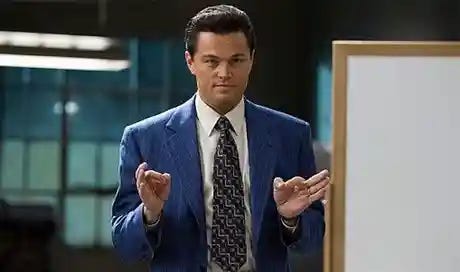Enterprise is eating the world
How this decade's market boom has slowed down innovation by focusing on business problems.
The idea of B2B startups is pretty meta.
“So I work for a startup that helps other startups, start-up” — Tech bro at bar
It makes sense though. There’s a ton of problems in businesses to innovate:
FinTech
HR and compliance
Marketing (myself included)
More importantly, there’s a ton of money in business solutions. Selling to a business is a lot more lucrative than selling to consumer (unless you’re Blade 🚁).
In the past 10-15 years, B2B has attracted some of the best founders, investors, and talent to solve problems for large enterprise companies.
But at what cost? Innovation in real-world problems.
It’s become a lot less sexy to solve consumer problems, and a lot less viable too.
In this short essay, I’ll dive some thoughts on how the venture capital boom has caused a focus on solving unneeded problems, and how things might quickly crumble these next few upcoming years.
How the problem started
I must say- the consumer industry is competitive. When it comes to individuals, we’re so impatient and have such a high bar on everything:
Our fitness apps
Package delivery times
Even the quality of our Snapchat selfie filters
We’re unforgiving, and oftentimes expect so much for free. This makes it hard to stay afloat let alone bootstrap in consumer startup world- unless you have significant venture capital funding.
Most of the time, you won’t be profitable for years.
When living in San Francisco, I had friends building a platform for consumers. After realizing some of the business problems they faced as a startup, they quickly pivoted into a B2B startup.
They told me they can finally sleep at night because businesses are only awake from 9-5, while consumers are awake at every hour.
For a while, there was a good balance and consumer startups would oftentimes raise more capital than B2B companies to pursue their ventures. That said, it’s not the same anymore.
How it escalated
The problem has quickly escalated in recent years from so much money being poured into venture capital and financial markets.
Everyone and their mom are investing nowadays. There’s so much dry capital that valuations and fundraising rounds are being squeezed so high.
The result? Businesses have a lot more money to spend.
Not only large enterprise companies, but also now startups that they’re willing to pay significantly more than usual for their B2B subscription services.
It’s become a lot easier to sell in the B2B industry with shorter sales cycles, less negotiations, and overall higher spending budgets.
The problem is that innovation and talent will always follow money, and it has caused a boom in B2B-focused startups.
So where is all of this money going?
From my perspective, it’s circulating around from startup to startup to startup, inflating each other’s sales and growing each other’s valuations. All until startups can convince the market to take a share in ownership of the company instead.
At the end of the day, the venture capitalists win. They take their profits, and re-invest into other artificially growing startups. The focus moves away from investing in innovation to investing in companies that can raise further rounds more quickly.
The market has been so hot we’ve seen startups now IPOing in less than 4 years or SPACs for barely series B standard startups.
The idea overall seems pretty ridiciluous, but how do things end?
Why it’s not sustainable
Just like there’s cycle in markets, there’s cycles in innovation. The financial markets have been on a near-12 year hot streak, making the bar a lot lower for what’s needed to be profitable.
I believe that if we see a turn in the market, we will see innovation find its way back to real-world problems.
Similar to how some of the most innovative startups (AirBnB, Uber, Square, Whatsapp) came out of the ‘08-09 recession, the same will happen if we face similar markets.
The startups solving real-world problem will sustain as noise gets cut out.
By the way, this isn’t investment advice. I’m just a silly little 22 year old who’s interested in economics. I also wrote this in an hour so sorry for any typ0s.


